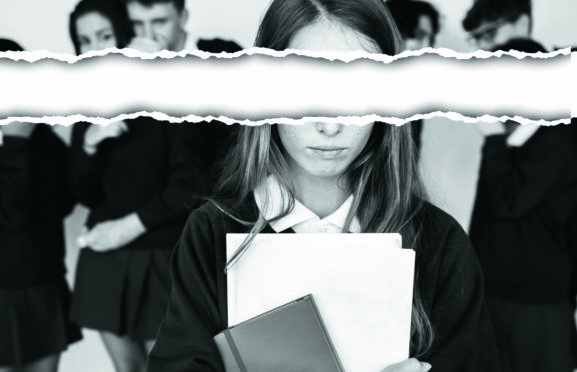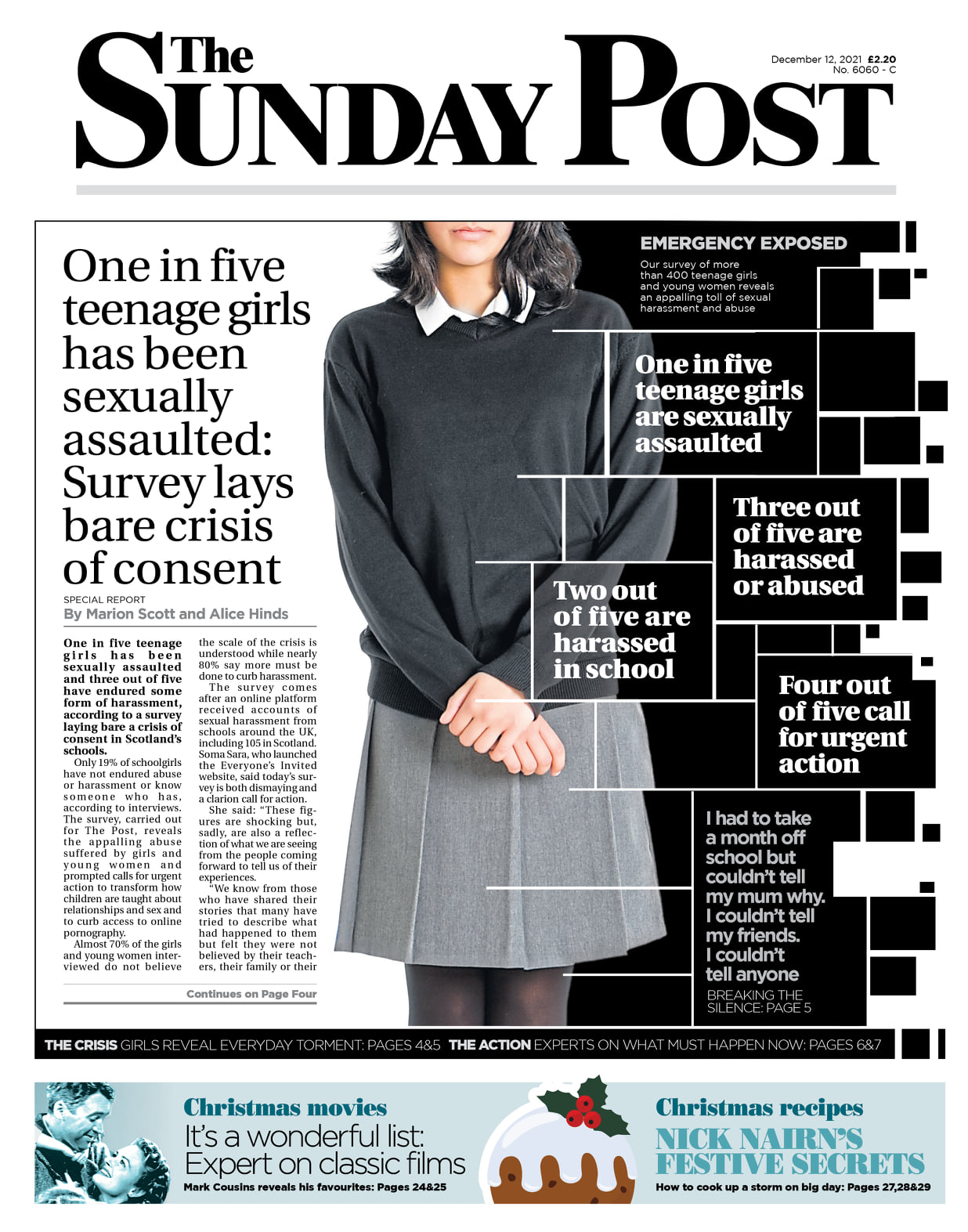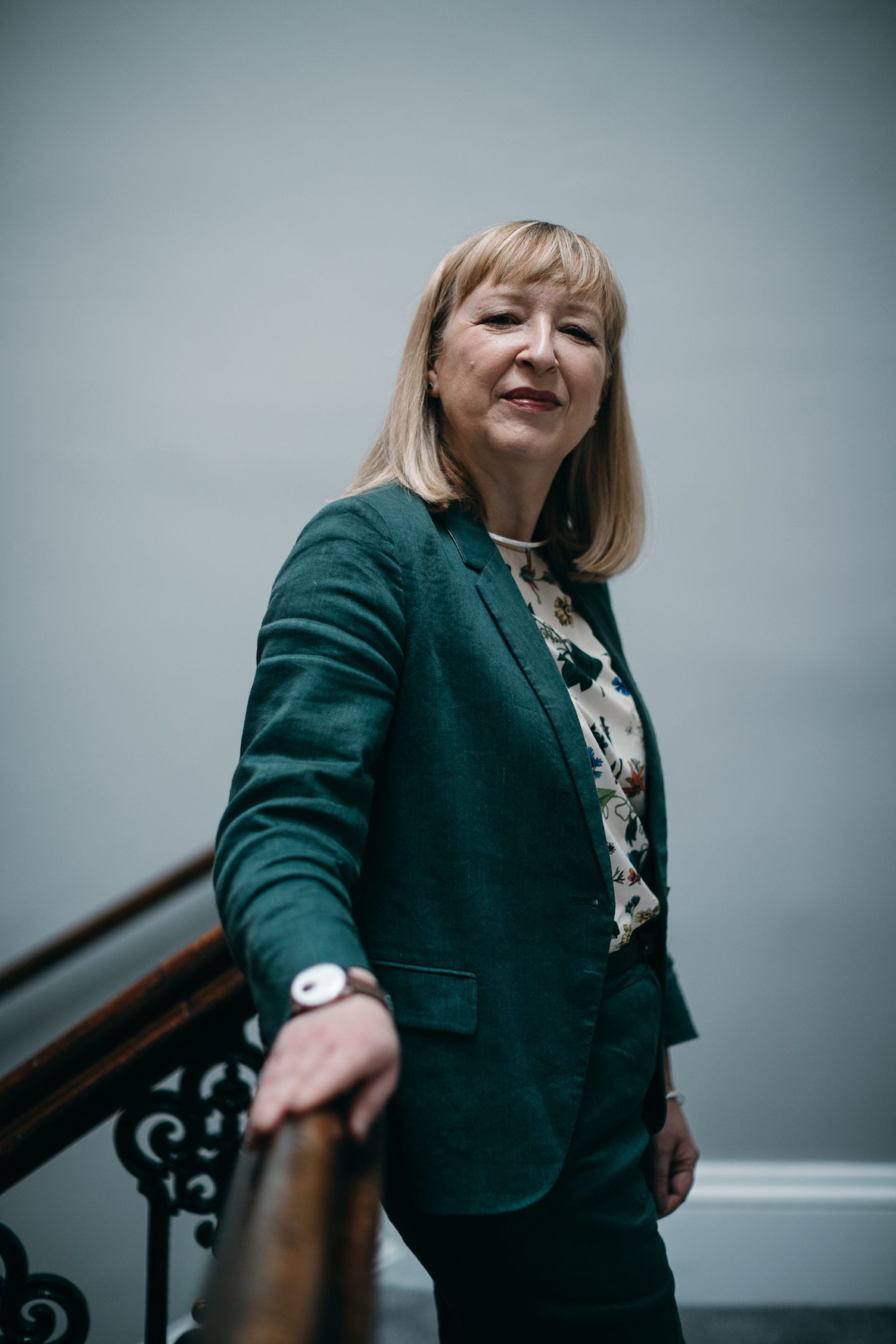
Andrea Bradley takes up her post as the new general secretary of teaching union the Educational Institute in Scotland (EIS) at a time when schools face a perfect storm of problems.
Pupils are coming to school hungry as a result of the cost-of-living crisis, struggling with the consequences of lockdown and facing a sexualised society which see girls as young as nine being harassed and assaulted.
Amid all this, they need to be taught.
Bradley said: “Teachers are buying food for kids. School uniform items are another thing as well. When they are in the supermarket, they are buying things for the kids in school that they know are not getting enough to eat at home.
“So many are buying food, keeping it in a cupboard in the classroom to dish out to kids who haven’t eaten since their free lunch the day before.
“That’s happening more and more now because of the cost-of-living increases and the way benefits have been cut.
“It’s absolutely appalling. I taught for 20 years and for 15 years I was in a school in an area of high deprivation and I saw that for myself.”
Meanwhile some pupils are still visibly struggling with the consequences of lockdown.
Much as been written about missed lessons and the struggle to properly grade pupils whose final exams were cancelled, but Bradley says the consequences for children go deeper. She said: “After young people have been returning to school since the periods of school closures, members have been reporting that there have been increased incidents of distressed behaviour among some young people and even amongst the youngest children.
“So they are seeing this kind of behaviour among primary one and primary two children where you might have been less likely to see that in the past. That’s not to say that older kids are not also struggling. Some teachers have been reporting that young people were struggling to get back into a rhythm and a pattern.
“They struggled to engage with real people in the room and were struggling to dislocate themselves from their mobile phones.
“During lockdown, they used tablets or other devices for learning and they were struggling with the change. So teachers have reported that kind of struggle with concentration. We did some research with teachers and they describe this behaviour as young people’s addiction to mobile devices.
“It’s almost like they can’t let go of them. When they have to give them up, that causes them distress as well.
“They struggle to talk to people as well, to communicate with their teachers and with other children in the class.
“There could be a number of factors at play here – such as what young people have experienced over the course of the pandemic as well because some of them will have been bereaved.
“The question is to what extent have they all received the support that they required during this time of national and global crisis.
“Teachers are definitely going to be seeing the impact of this for some time.”
Bradley is the union’s first woman general secretary in its 175-year history – a surprising enough statistic, but even more so given that 90% of primary school teachers are women, and 64% in secondary schools.
As she prepares takes the reins, misogyny and sexism is high on her agenda. Not just as something faced by her members but, more alarmingly, something faced by children.
She said: “I’ve been involved in work with the gender equality, education and learning task force which was looking at reports of girls as young as nine and ten being victims of sexual harassment, some of them reporting suffering sexual violence.”
It is a problem which was highlighted in this newspaper last year when we revealed one in five teenage girls has been sexually assaulted and three out of five have endured some sort of harassment.
The survey revealed appalling abuse suffered by girls and young women and prompted calls for urgent action to transform how children are taught about relationships and sex and to curb access to online pornography.
Bradley said the message from female pupils is clear. She said: “They are imploring government, those with responsibility for education, boys, everyone who has a role in this to get involved and make a change for them. It is something that girls are feeling very strongly about.”
The union provides members with training to help them tackle the problem, but Bradley believes schools alone cannot turn the tide.
She said: “We provide professional learning for our members around gender equality, stereotyping, subject choice and the risk of gender segregation within subject choice. Education has to make sure it is not doing anything to solidify or widen inequalities but there is also a huge issue over what happens when young people leave school and go into the world of work.
“There is still sexism and misogyny that continues to exist for women workers in employment. It has got to be every area of society that looks at this – in politics, in the media.
“It continues to be a real issue. It is not fixable by the education system alone.” Bradley succeeds Larry Flanagan who has been general secretary for 10 years. She was previously the EIS assistant secretary for education and equality, a post she held for seven years.
A principal teacher of English in South Lanarkshire, Bradley started her career in Inverclyde in 1995.
She graduated with a degree in History and English from the University of Strathclyde, before returning to the university to complete her postgraduate studies in education. She said her appointment was the culmination of a long process of change within the EIS and the trade union movement.
She said: “The EIS hasn’t been immune to the kinds of barriers that women have faced in wider society. The outgoing general secretary in his tenure has sought to promote gender equality.
“There have been strong women within the EIS advocating for us to have a much better gender balance within recruitment to senior posts. My election is the culmination of that work by other women and the general secretary.”
Bradley offered advice to teachers at the start of their career. She said: “My advice would be to work very close with their good colleagues. Learn as much as they can from them and don’t be afraid to ask questions and find something positive and affirming in every school day.
“Do that in the knowledge that with experience things get somewhat less overwhelming and go about every day knowing that the job that they do is essentially important.
“It is essentially important to children, to young people and families and ultimately to our wider society.
“It’s a very skilled and valuable job that they do. Amid all that, they should do everything that they can to look after themselves so that they are able to do the job each and every day.
“Sometimes that means saying no to things, it means not doing that extra thing that someone has asked them to do. Grow confidence in exercising your agency as a teacher and making your professional voice heard by becoming active in your union – hopefully the EIS.”

Enjoy the convenience of having The Sunday Post delivered as a digital ePaper straight to your smartphone, tablet or computer.
Subscribe for only £5.49 a month and enjoy all the benefits of the printed paper as a digital replica.
Subscribe
